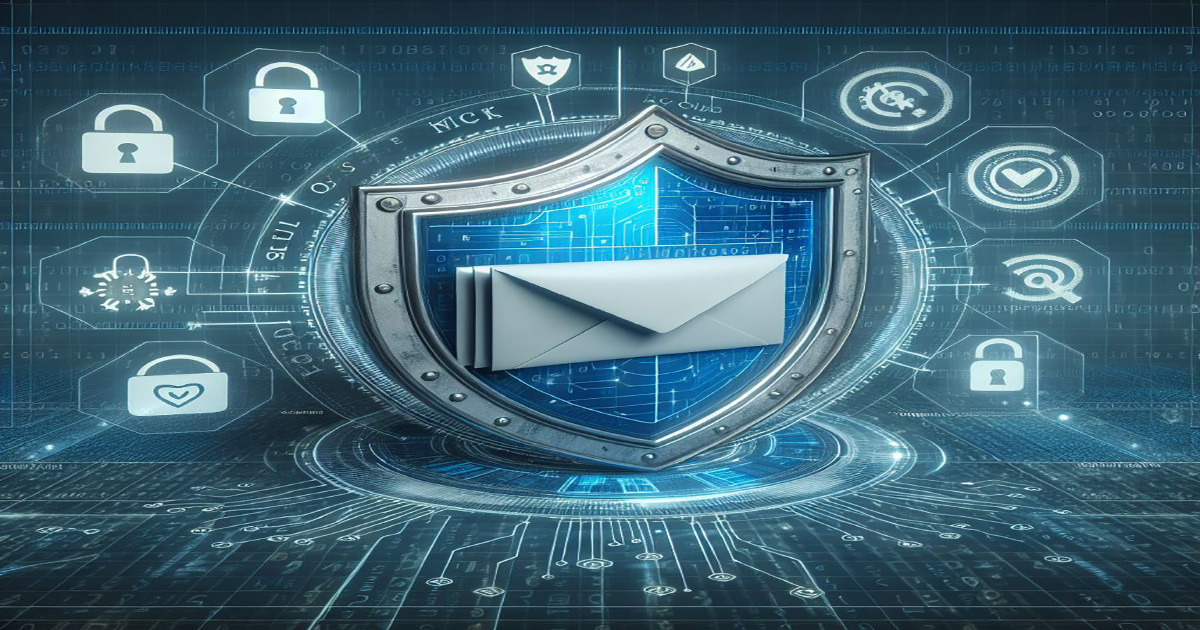Email Protection in the UK: Why It’s Essential for Business Security in 2025

Email protection is essential for business security in the UK in 2025. It remains one of the most widely used communication tools in businesses across the country. However, it is also one of the most common entry points for cybercriminals. From phishing attacks and malware distribution to data breaches and business email compromise (BEC), email-based threats are on the rise, posing significant risks to organisations of all sizes. In 2025, robust email protection is not just recommended—it’s essential.
Why is Email Protection Important for UK Business?
Emails are a primary target for cybercriminals because they are often the weakest link in a company’s security infrastructure. Employees might unknowingly open malicious attachments, click on dangerous links, or fall for impersonation scams. Without effective email protection, businesses are left vulnerable to financial loss, data breaches, and reputational damage.
The Growing Threat of Phishing and Email BEC
Phishing attacks, where hackers impersonate trusted contacts or organisations, remain one of the most common email threats. Business Email Compromise (BEC) attacks, where fraudsters gain access to a legitimate email account to request fraudulent payments, have also increased significantly. Both types of attacks exploit human error and the lack of advanced security and protection measures.
Phishing tactics are becoming increasingly sophisticated, with attackers using AI-generated emails, fake login pages, and deepfake technology to trick employees into compromising sensitive data. Training employees to spot these deceptive tactics is crucial, but equally important is having technical barriers, such as advanced threat detection and protection tools, in place.
Phishing is one of the most common types of cyber attacks. Individuals and businesses should remain vigilant when handling emails, messages, and online communications to protect against these threats.
Learn more about protecting both yourself and your business from phishing!
Data Privacy and Compliance Within UK Email Protection
In the UK, strict regulations such as GDPR and the Data Protection Act 2018 require businesses to protect personal and sensitive information. Email systems often contain confidential data, and failure to secure them can result in severe fines and damage to customer trust.
Beyond compliance, data breaches resulting from email vulnerabilities can have a lasting impact on business operations, shareholder confidence, and brand reputation. Proactive measures to secure email communication are not just about avoiding fines—they are about sustaining long-term business success.
The ROI of Investing in Email Protection
Investing in email protection technology and training provides a substantial return on investment. Preventing a single cyber incident can save UK businesses thousands—or even millions—of pounds in recovery costs, legal fees, and lost productivity.
Enhancing Productivity and Reducing Downtime
Email attacks often lead to significant downtime as IT teams scramble to contain and remediate threats. Proactive email protection reduces the risk of breaches, allowing teams to focus on their core responsibilities without constant disruption.
Safeguarding Customer Trust: Security
Trust is one of the most valuable assets for any organisation. A single email-related breach can erode years of built trust with customers and partners. Investing in email security demonstrates a commitment to protecting customer data and maintaining business integrity.
This is why the NCSC is recommending Cyber Security Awareness Training to all business in the UK.
Key Components of Effective Email Protection
- Advanced Threat Detection: AI and machine learning tools to identify and block phishing emails and malicious attachments.
- Email Encryption: Ensures that sensitive information cannot be intercepted in transit.
- Spam and Malware Filters: Automatically block suspicious emails before they reach the inbox.
- Multi-Factor Authentication (MFA): Adds an extra layer of security to email accounts.
- Employee Training: Educates staff on recognising suspicious emails and phishing attempts.
- Trust-Based Reporting Culture: Encourages employees to report suspicious emails without fear of repercussions.
- Regular Security Audits: Periodic reviews of email security policies and systems to identify and fix vulnerabilities.
Building a Culture of Email Security Awareness
Email protection isn’t just about technology—it’s about people. Employees in the UK must be empowered to make smart decisions when handling emails. Regular training sessions, phishing simulations, and a culture of transparency ensure that employees remain vigilant and confident in reporting potential threats.
Encouraging Open Communication in the UK
Creating a blame-free environment is critical. Employees should feel comfortable reporting potential email threats or admitting mistakes without fear of punishment. A single unreported phishing incident can have catastrophic consequences, so fostering a culture of trust, openness, and protection is vital.
Continuous Education on Email Security for Employees
Email security threats evolve constantly, which means employee training must be an ongoing initiative. Quarterly training sessions, up-to-date phishing simulations, and regular feedback sessions help employees stay sharp and informed about the latest threats.
Final Thoughts
Email protection is not just an IT issue; it’s a fundamental aspect of overall business security. As cyber threats continue to grow in complexity, UK businesses must prioritise robust email security measures, from advanced protection tools to employee awareness training.
Investing in email protection isn’t just about stopping attacks—it’s about safeguarding your business’s future, maintaining compliance, and building trust with your customers and stakeholders. By combining advanced technology, employee awareness, and a trust-based reporting culture, businesses can create a secure and resilient email communication environment that stands up to the threats of 2025 and beyond.
